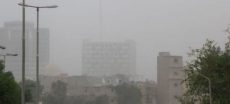The Pakistan Telecommunication Authority (PTA) has disclosed that internet shutdowns across the country are carried out under government directives, triggering a heated debate in the Senate Standing Committee on Information Technology. The revelation raised questions about the legality and rationale of disrupting digital access, particularly as Pakistan ranks 97th globally in internet speed.
During the session, chaired by Senator Palwasha Khan, panel members expressed serious concerns about the slow internet speeds and the legal basis behind internet shutdowns and content blocking. PTA Chairman Retired Major General Hafeezur Rehman faced tough questioning regarding complaints about internet slowdowns, with the authority reportedly receiving an average of 500 daily complaints about objectionable content on social media. Rehman noted that 80% of such material is successfully removed after requests to social media platforms.
Also Read: Pakistan Ranked Among Slowest for Internet Speed
Senator Kamran Murtaza from JUI-F questioned the legality of shutting down the internet in specific areas, challenging the PTA on the absence of legal grounds for such actions. In response, Rehman clarified that the PTA does not independently make these decisions but follows government instructions. He emphasized that these shutdowns had been occurring since 2016, though they were recently deemed unlawful and require the interior ministry’s legal opinion.
The committee also raised concerns over the Prevention of Electronic Crimes Act (PECA), with Murtaza highlighting that the law does not explicitly authorize internet blackouts. PTA officials argued that the interior ministry has the authority to issue such directives, even though the law does not clearly support blocking internet services in particular regions. Senator Murtaza criticized the shutdowns, likening them to attempts to keep people in ignorance for political purposes, disrupting education, business, and access to information.
The committee demanded clear legal opinions from the Ministries of Law and Interior, urging the need for a defined legal framework for these actions. In addition, PTA Chairman Hafeezur Rehman discussed the issue of VPN regulations, revealing that only two companies had applied for VPN service licenses, and clarified that he had not authorized any VPN service closures. The session concluded with calls for greater investment in digital infrastructure, particularly fiberisation, to address the country’s slow internet speeds.











